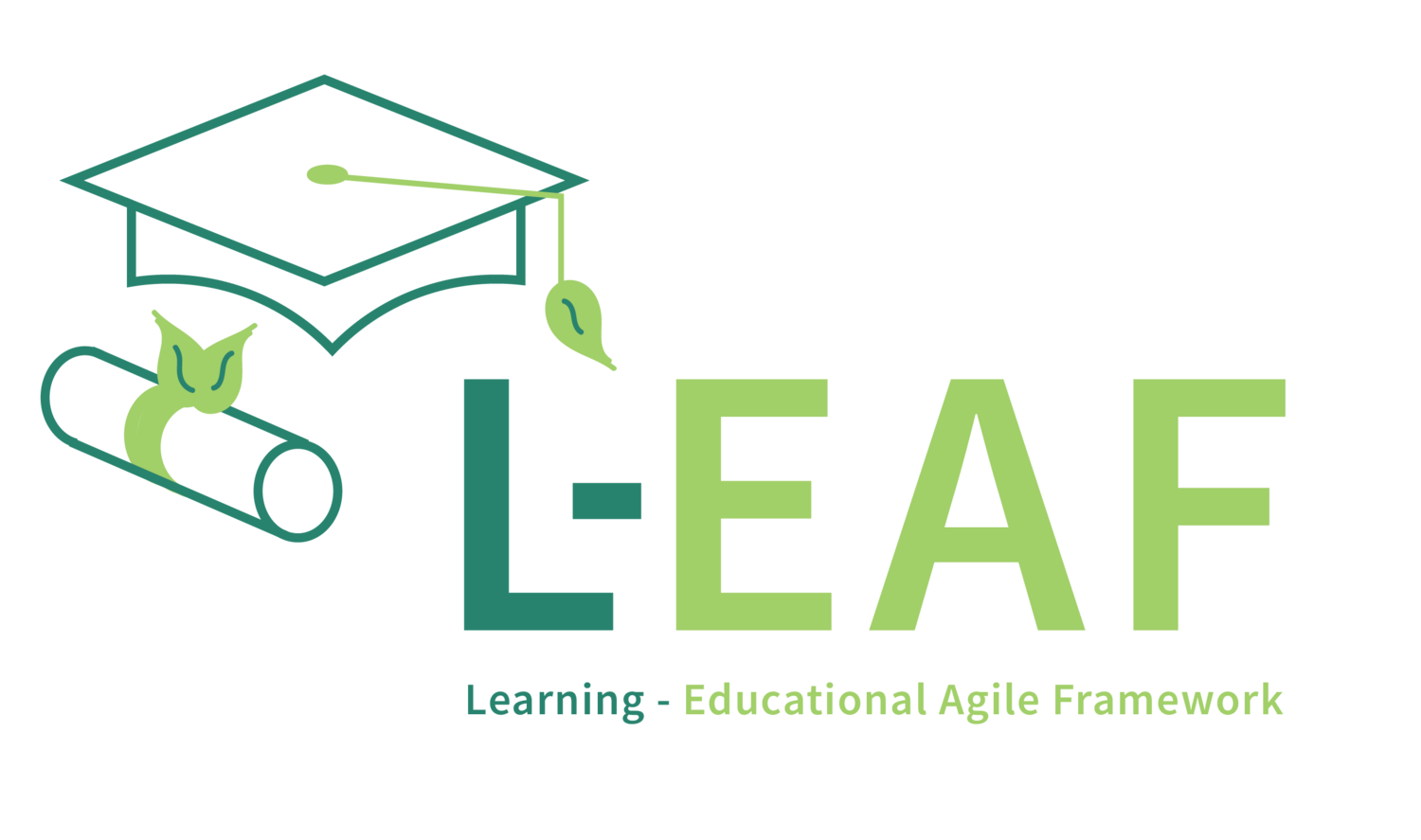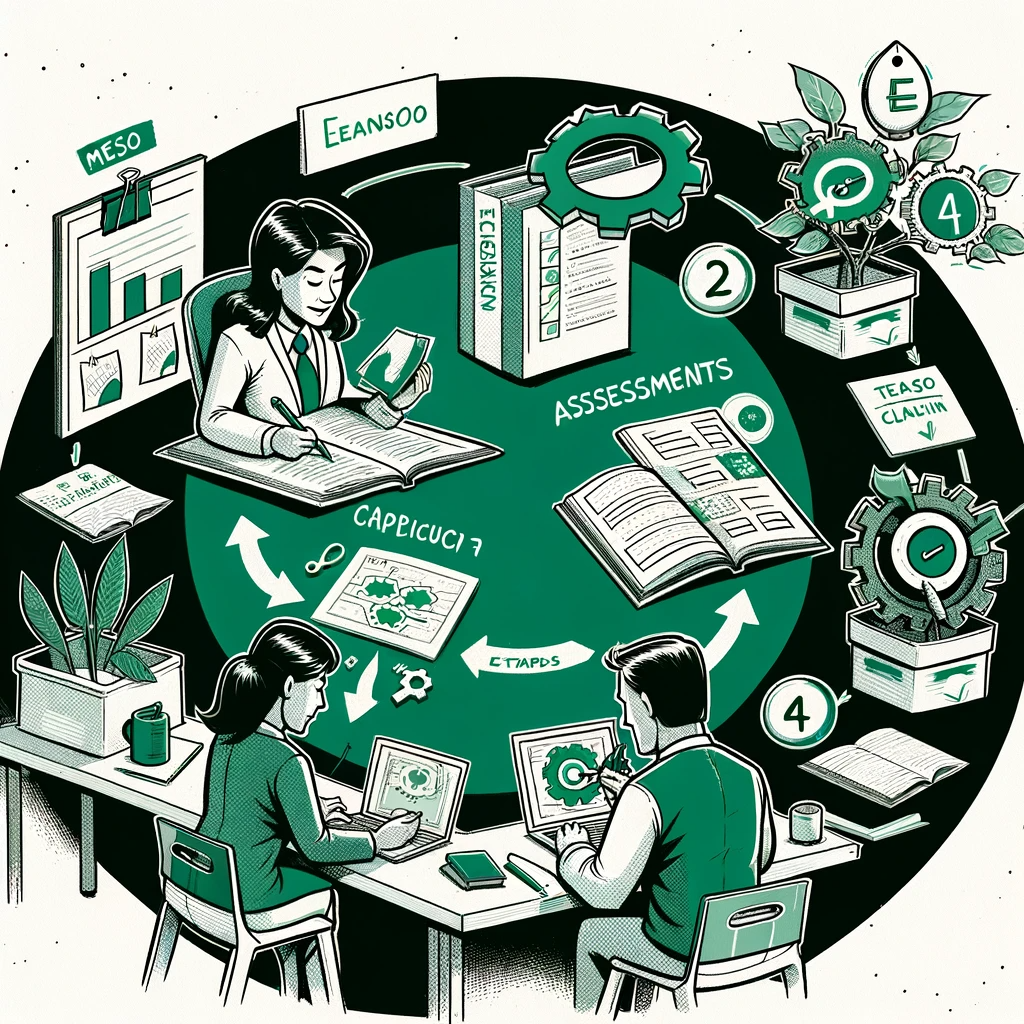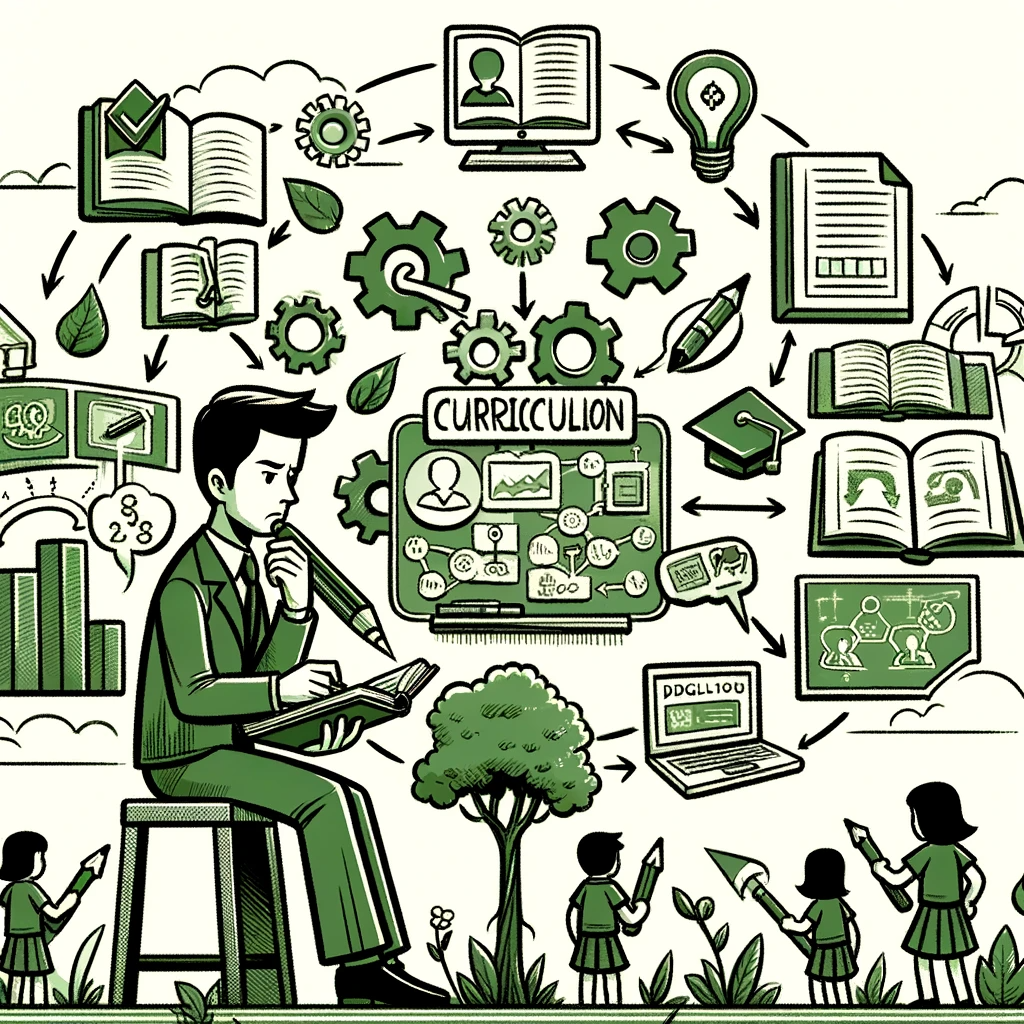The Teacher-Centric Planning Stage in LearningFLOW: The Meso Learning Cycle
The Meso Learning Cycle forms the bedrock of the LearningFLOW teaching approach, marking the beginning of a comprehensive and effective learning experience. Predominantly centered around educators, this cycle plays a pivotal role in shaping the educational path. This discussion delves into the nuances of the Meso Learning Cycle, highlighting its critical position in the learning framework.
Essentially, the Meso Learning Cycle is where educators engage in extensive planning and preparation, crafting the overarching aims of a course or curriculum. This phase is strategic in nature, focusing on setting long-term goals and charting the direction of the educational journey.
Duration and Characteristics
The Meso Learning Cycle typically unfolds during the initial stages of curriculum planning, possibly spanning a semester, a year, or the entire length of a specific course. Its hallmarks include establishing goals, mapping the curriculum, and identifying necessary resources, all aimed at forging a learning path that is both structured and adaptable. Common durations may span from two months to a full school year. Shorter cycles provide more opportunities to improve your practices within the cycle, over the course of the year.
Educators’ Role as Learning Architects
In this cycle, educators step beyond traditional teaching duties, taking on roles akin to architects of the learning experience. This involves not just teaching but also developing the curriculum, aligning learning goals with educational standards, and forecasting student needs and learning outcomes. Agile lesson planning will not only reduce your workload but it result in more engaging, contextualize and purposeful lessons.
Strategic Lesson Planning
Strategic planning here means pinpointing crucial learning milestones, aligning them with overarching educational objectives and standards, and catering to the diverse needs of students. Teachers will find a balance between academic rigor and adaptability, allowing the curriculum to flexibly accommodate different learning styles and classroom dynamics. LearningFLOW breaks up the effort required for creative, meaningful lesson planning into six practices that are repeated each Meso Learning Cycle, if short focused working sessions.
Curriculum Mapping and Resource Allocation
A vital aspect of the Meso Cycle is curriculum mapping, which entails detailing the content, skills, and assessments to be covered. This process requires thoughtful resource allocation, including textbooks, digital tools, and other materials, to support the learning goals. Teachers align the learning Outcomes and Key Results with educational standards during the Meso Cycle. This alignment is crucial for maintaining academic integrity and preparing students for future educational challenges.
Flexibility in Planning
Though detailed planning is a cornerstone of the Meso Cycle, educators also need to stay flexible, ready to modify plans based on student feedback, evolving educational trends, and new insights gained during the teaching process. Effective planning in this phase often involves collaboration with colleagues, administrators, other practitioners, coaches and sometimes students and parents. This inclusive approach ensures a more comprehensive educational strategy.
Assessment Planning
Planning assessments that correspond with learning outcomes is important. Educators create evaluation methods that accurately gauge student understanding and progress, ranging from traditional exams to innovative, project-based assessments. Integrating technology and modern teaching methods is another crucial facet of the Meso Cycle. Educators explore digital tools and interactive platforms to enrich the learning experience and engage students in novel ways.
Foundation for Subsequent Cycles
The Meso Learning Cycle is the groundwork for the Macro and Micro Learning Cycles. Decisions made in this phase significantly impact the learning experiences in the later stages, ensuring a well-structured, purposeful educational journey. In this cycle, educators are instrumental in shaping the educational landscape. By effectively planning and strategizing, they pave the way for a challenging yet rewarding learning journey. This article will next delve into the strategies and activities educators can employ in the Meso Learning Cycle to foster a dynamic and impactful learning environment. A typical school year can be divided into a series of Meso Learning Cycles ranging from two to 5 months. While the Meso Learning Cycle's length can vary it typically aligns with a significant academic period, like a term or semester or unit. It may extend to an entire academic year for comprehensive curriculum planning.
Common Practices for Maximizing Benefits
To make the most of the Meso Learning Cycle, educators should:
Engage in Thorough Planning: Dedicate ample time to initial course planning to ensure a cohesive learning experience.
Align with Standards and Goals: Ensure the curriculum meets educational standards and learning objectives.
Utilize Diverse Resources: Employ various resources, including technology and novel teaching methods, to cater to different learning styles.
Collaborate with Colleagues: Work with fellow educators for a more well-rounded curriculum.
Remain Adaptable: Stay flexible to adapt to classroom changes and student needs.
Reflect and Iterate: Regularly evaluate the planning's effectiveness and be ready to make continuous improvements.
In conclusion, the Meso Learning Cycle is a key phase in LearningFLOW, laying a solid foundation for successful educational outcomes. Through thoughtful planning and strategic execution, educators craft enriching and impactful learning experiences for students. Future articles in this series will delve into the Macro and Micro Learning Cycles, further detailing the comprehensive LearningFLOW pedagogy.




